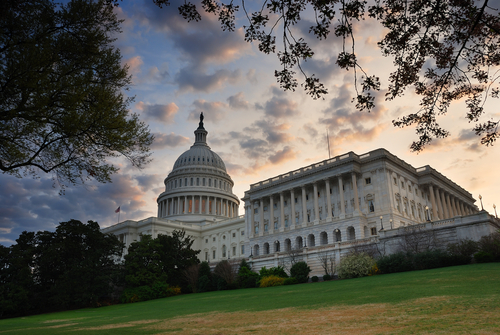The United (Police) State of America, Part II
Ed. Note: In yesterday’s reckoning, Doug shared with us his thoughts regarding the degeneration of the once-freer republic into a police state. [You can read it here if you missed it]. In today’s installment, Doug outlines some specific points to make his case.
Doug: Let’s take these in order. First:
Assassination of US citizens: “President Obama has claimed, as President George W. Bush did before him, the right to order the killing of any citizen considered a terrorist or an abettor of terrorism.”
Of course the very concept of terrorism is highly malleable, with over 100 definitions floating about — as we’ve discussed. But apart from that, it’s now accepted that the president and his minions have the right to kill almost anyone. This conceit will get completely out of control after the next real or imagined major terrorist incident.
Louis: This reminds me of the extraordinary powers given to government agents to battle the War On Some Drugs — like the RICO statutes — which have now been turned against ordinary citizens who have nothing to do with the drug trade.
Doug: Exactly. Once you give the state a power — for whatever good reason you imagine it needs it — it will use that power for whatever those in charge feel is in their interests. And those in charge are never saints.
Next:
Indefinite detention: “Under the law signed last month, terrorism suspects are to be held by the military; the president also has the authority to indefinitely detain citizens accused of terrorism.”
This was a precedent set by Guantánamo, where scores of the accused continue to rot without even a kangaroo-court trial.
Arbitrary justice: “The president now decides whether a person will receive a trial in the federal courts or in a military tribunal, a system that has been ridiculed around the world for lacking basic due process protections. Bush claimed this authority in 2001, and Obama has continued the practice.”
As the government becomes more powerful, it’s completely predictable that everything — including the justice system — will become ever more politicized. And government very rarely relinquishes a power it’s gained. I particularly like the Supreme Court ruling in April 2012 that allows anyone who’s arrested for anything — including littering or jaywalking — to be strip-searched.
Louis: Note to readers: you can’t hear Doug’s voice, but I assure you that his use of the word “like” is sarcastic.
Doug: Just so. Moving right along:
Warrantless searches: “The president may now order warrantless surveillance, including a new capability to force companies and organizations to turn over information on citizens’ finances, communications and associations. Bush acquired this sweeping power under the Patriot Act in 2001, and in 2011, Obama extended the power, including searches of everything from business documents to library records.”
Privacy is now a completely dead concept, from both a legal and a practical point of view. If you want to retain privacy, you now have no alternative to relocating outside the US.
Louis: Or any advanced Western country. I’ve read that there are more surveillance cameras per square mile in London than anywhere else.
Doug: I’ve heard that too. The opposite being true in rural Argentina is one of the things I like about it. Back to the list:
Secret evidence: “The government now routinely uses secret evidence to detain individuals and employs secret evidence in federal and military courts. It also forces the dismissal of cases against the United States by simply filing declarations that the cases would make the government reveal classified information that would harm national security…”
“National security” essentially amounts to nothing more than government security, which amounts to cover for the individuals in the government. Nazi Germany and the USSR were national-security states. As I’ve tried to explain in the past, once a critical mass is reached, it’s impossible to reform a government. I believe we’ve reached that state in the US.
War crimes: “The world clamored for prosecutions of those responsible for waterboarding terrorism suspects during the Bush administration, but the Obama administration said in 2009 that it would not allow CIA employees to be investigated or prosecuted for such actions. This gutted not just treaty obligations but the Nuremberg principles of international law.”
Torture by field operatives under the stress of combat is one thing; torture as official policy is something else again. But torture is now accepted in the US. Worse, there are far more serious war crimes than torture being committed in the name of the US that are going unpunished.
Louis: This is, after all, a far darker version of the same US government that deliberately infected black US citizens with syphilis just to see what would happen, and sent US citizens of Japanese descent to concentration camps during WWII.
Doug: Exactly. The next point is:
Secret court: “The government has increased its use of the secret Foreign Intelligence Surveillance Court, which has expanded its secret warrants to include individuals deemed to be aiding or abetting hostile foreign governments or organizations. In 2011, Obama renewed these powers, including allowing secret searches of individuals who are not part of an identifiable terrorist group.”
You no longer live in a free country when there’s zero privacy for citizens, but 100% secrecy for the government and those it employs.
Immunity from judicial review: “Like the Bush administration, the Obama administration has successfully pushed for immunity for companies that assist in warrantless surveillance of citizens, blocking the ability of citizens to challenge the violation of privacy.”
The government has outsourced some of its functions — not least the use of contractors in war zones. Increasingly, being associated with the government gives you a “get out of jail free” card. In the USSR they called this a “krisha” — a roof.
Continual monitoring of citizens: “The Obama administration has successfully defended its claim that it can use GPS devices to monitor every move of targeted citizens without securing any court order or review.”
Bad as this is, it’s just one example. There’s also the use of domestic drones, and hundreds of thousands of cameras that take pictures of everyone everywhere.
Extraordinary renditions: “The government now has the ability to transfer both citizens and noncitizens to another country under a system known as extraordinary rendition, which has been denounced as using other countries, such as Syria, Saudi Arabia, Egypt and Pakistan, to torture suspects.”
Yes, if someone is kidnapped, there’s plausible deniability if the torturing is done abroad by a third party. And they’re likely to have even fewer compunctions.
Louis: That’s a pretty depressing list, Doug.
Doug: And this is just the beginning. As I’ve said before, I don’t call the shots — just try to tell the truth as I see it. The point is that you couldn’t assemble a list like this even 15 years ago. But now it’s part of the firmament. Worse, it’s going to grow. As the economy turns down over the next few years, the people — acting like scared chimpanzees — will ask the government to “do something.” And it will. The trend is going hyperbolic.
Louis: I can’t argue… and I agree it is not likely to be stopped. So if this is a sure trend, are there investment implications?
Doug: This just goes to reinforce what I’ve been saying for some time. As great as a US citizen’s risk is in the marketplace these days, the greatest single risk to their wealth and health is the government. People simply must internationalize to diversify their political risk. I can’t stress that strongly enough.
Louis: Would you go so far as to say that being a taxpayer in the US now is like being a Jew in Germany in the mid-1930s?
Doug: That’s a good analogy. It’s costly and upsetting to uproot, but the risk if you don’t is unimaginably worse. And I would warn people in other countries to take the same precautions. All of these nation-states are dying dinosaurs that will cause a lot of damage as they thrash about in their death throes. No place is completely safe, but you improve your odds by not putting your eggs all in one basket.
Louis: Okay, I guess we’ve covered that plenty of times. Is there a “police-state play” — any investments one could make before the new Iron Curtain slams down? Handcuff manufacturers?
Doug: Nah — they have those plastic zip-binder things now; they’re so cheap that I doubt the manufacturer can even make big money in volume. But I do remember a speech I attended in the ’90s given by William Bennett, the ex-Drug Czar, who recommended investing in prisons. I excoriated him as a sociopath at that meeting — but he was right. However, that ship has sailed; it’s hard to believe the US can incarcerate more than the current 2.3 million people. Besides, I find it morally offensive to capitalize on what I consider to be criminal enterprises. No, for now the only absolutely crystal-clear imperative is as above: You’ve got to have a Plan B ready in case you need to get out of Dodge — and you need it pronto.
And to those who celebrate Thanksgiving, I urge you to remember that it was hard work and the freedom to profit from it that created the bounty the pilgrims celebrated. It was this enterprising spirit and the liberty to exercise it that was the heart of the idea of the America That Was — the idea that made America great. Those corrupt politicians who have been undermining these values for so long and the willfully ignorant ideologues who support them are responsible for turning this country into the United (Police) State of America. They should be criticized and opposed at every opportunity.
Louis: Okay, Doug. Thanks for another challenging but enlightening conversation.
Doug: My pleasure.
Regards,



Comments: